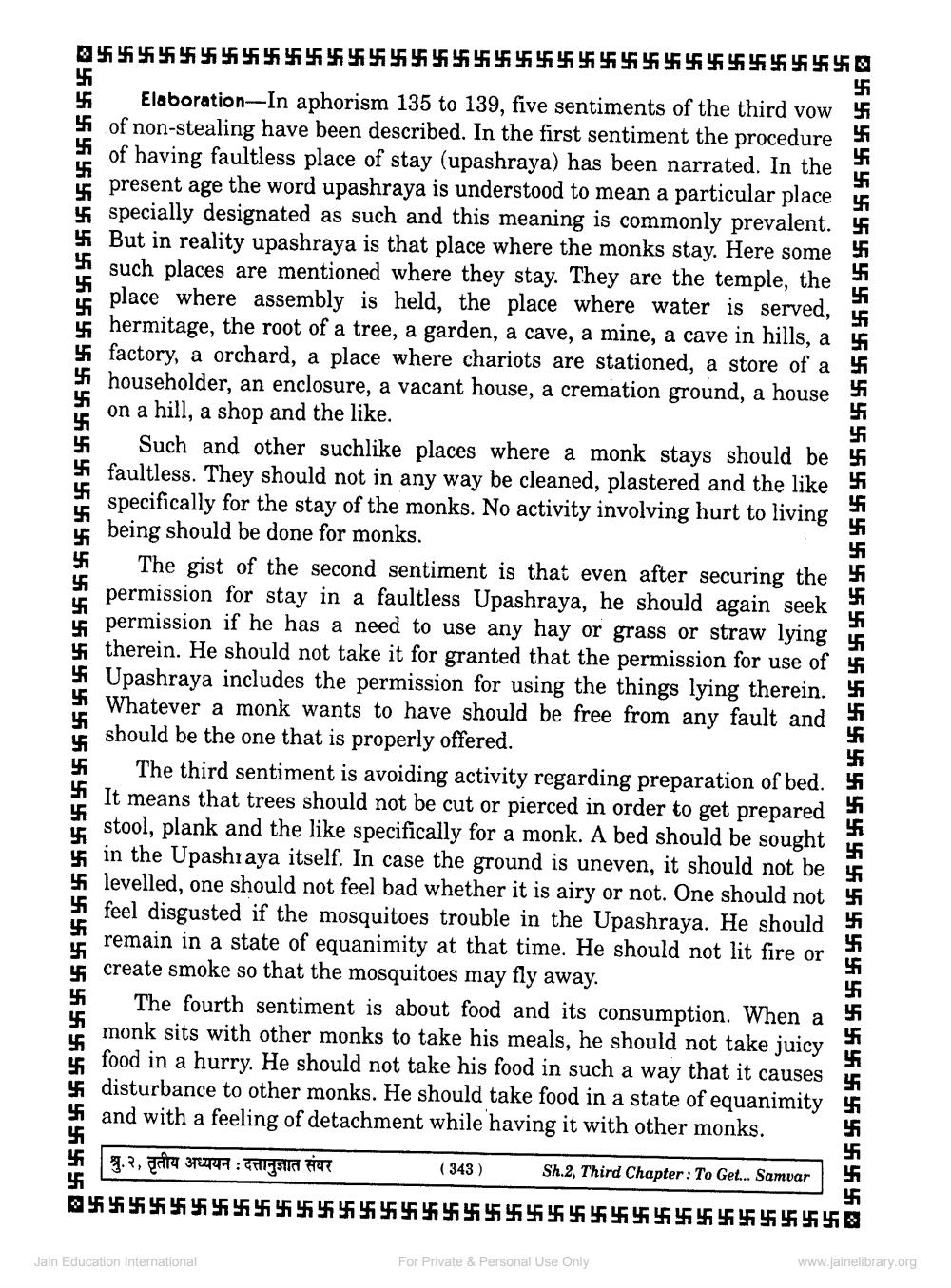________________
4444546454545454545454545454545454545451 451 454 455 456 457 455 456 457 455 456 457 451 1541
45 46 47 4
4
4
4
4
1 4
4
4
4
4 4
4 4
4 4
457 455 456 457 4 4 455 456 456 457 41 41 41 41 41 41 41 41 4
4
Elaboration-In aphorism 135 to 139, five sentiments of the third vow of non-stealing have been described. In the first sentiment the procedure of having faultless place of stay (upashraya) has been narrated. In the present age the word upashraya is understood to mean a particular place specially designated as such and this meaning is commonly prevalent. But in reality upashraya is that place where the monks stay. Here some such places are mentioned where they stay. They are the temple, the
place where assembly is held, the place where water is served, 5 hermitage, the root of a tree, a garden, a cave, a mine, a cave in hills, a 4
factory, a orchard, a place where chariots are stationed, a store of a $ householder, an enclosure, a vacant house, a cremation ground, a houses on a hill, a shop and the like.
Such and other suchlike places where a monk stays should be faultless. They should not in any way be cleaned, plastered and the like specifically for the stay of the monks. No activity involving hurt to living
being should be done for monks. $ The gist of the second sentiment is that even after securing the si
permission for stay in a faultless Upashraya, he should again seek
permission if he has a need to use any hay or grass or straw lying 4therein. He should not take it for granted that the permission for use of
Upashraya includes the permission for using the things lying therein. Whatever a monk wants to have should be free from any fault and should be the one that is properly offered.
The third sentiment is avoiding activity regarding preparation of bed. It means that trees should not be cut or pierced in order to get prepared stool, plank and the like specifically for a monk. A bed should be sought
in the Upash, aya itself. In case the ground is uneven, it should not be 41 levelled, one should not feel bad whether it is airy or not. One should not $ feel disgusted if the mosquitoes trouble in the Upashraya. He should
remain in a state of equanimity at that time. He should not lit fire or create smoke so that the mosquitoes may fly away.
The fourth sentiment is about food and its consumption. When a monk sits with other monks to take his meals, he should not take juicy food in a hurry. He should not take his food in such a way that it causes
disturbance to other monks. He should take food in a state of equanimity $i and with a feeling of detachment while having it with other monks.
4 4
4 4
4 4
4 4
4 4
455 456
4
4
4 455 456 457
4
4 4 4
4 4 4 4
4
4 4
4 4
5 4 5 4
4
श्रु.२, तृतीय अध्ययन : दत्तानुज्ञात संवर
(343)
Sh.2, Third Chapter: To Get... Samvar
4 4
4
454545454545454545454545454545454545454545454545455 456 457 455 456 457 455 456 457
www.jainelibrary.org
For Private & Personal Use Only
Jain Education International




